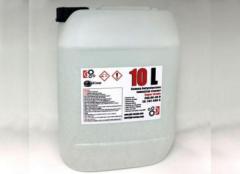Buy GBL Gamma Butyr...
Everything Else
Water level sensors are crucial devices used to measure and monitor the level of liquids in various applications. They play a vital role in industries like environmental monitoring, agriculture, manufacturing, and water management. These sensors are designed to provide accurate and real-time data, making them essential for maintaining optimal operational efficiency and ensuring safety.
In this article, we will explore the fundamentals of water level sensor, their types, working principles, applications, and the key factors to consider when choosing the right sensor for your specific needs.
What are Water Level Sensors?
Water level sensors, also known as liquid level sensors or level sensors, are instruments used to detect and measure the depth of liquids in containers, tanks, reservoirs, or natural water bodies. They are equipped with various technologies that allow them to determine the liquid's level accurately. The data gathered from these sensors can be used for different purposes, including automation, control systems, and data analysis.
Types of Water Level Sensors
There are several types of water level sensors, each with its own working principles and suitable applications:
Applications Of Liquid Level Sensors
liquid level sensor finds extensive use in various industries and applications, some of which include:
Water Resource Management: Water level sensors are crucial for monitoring water levels in reservoirs, rivers, and lakes. They help in managing water resources effectively, predicting floods, and ensuring a sustainable water supply.
Agriculture: These sensors aid in irrigation management, ensuring that crops receive the right amount of water. They also help in preventing overwatering and water wastage.
Industrial Processes: Water level sensors are used in industries to monitor liquid levels in tanks and vessels, allowing for precise control and preventing spillage or inadequate supply.
Environmental Monitoring: They play a key role in monitoring groundwater levels, ensuring the health of ecosystems, and understanding climate-related changes.
Wastewater Management: Water level sensors help in monitoring sewer levels, optimizing pump operation, and preventing overflow and pollution.
Aquaculture: These sensors are used in fish farms to monitor water levels, ensuring the best conditions for fish growth.
Weather Forecasting: Water level sensors provide data for weather forecasting models, especially during heavy rainfall and flooding events.
Hydroelectric Power Generation: They are essential for monitoring water levels in dams and reservoirs used for hydropower generation.
Conclusion
Whether you need to monitor water resources, optimize irrigation, or ensure proper wastewater management, a reliable water level sensor can provide accurate data for better decision-making and enhanced efficiency in a wide range of industries and applications. Choose a reputable manufacturer like Rika Sensor to ensure you get high-quality and durable sensors that deliver precise results.
Investing in the right water level sensor is an investment in better resource management and environmental protection, contributing to a more sustainable and efficient future.





Comments